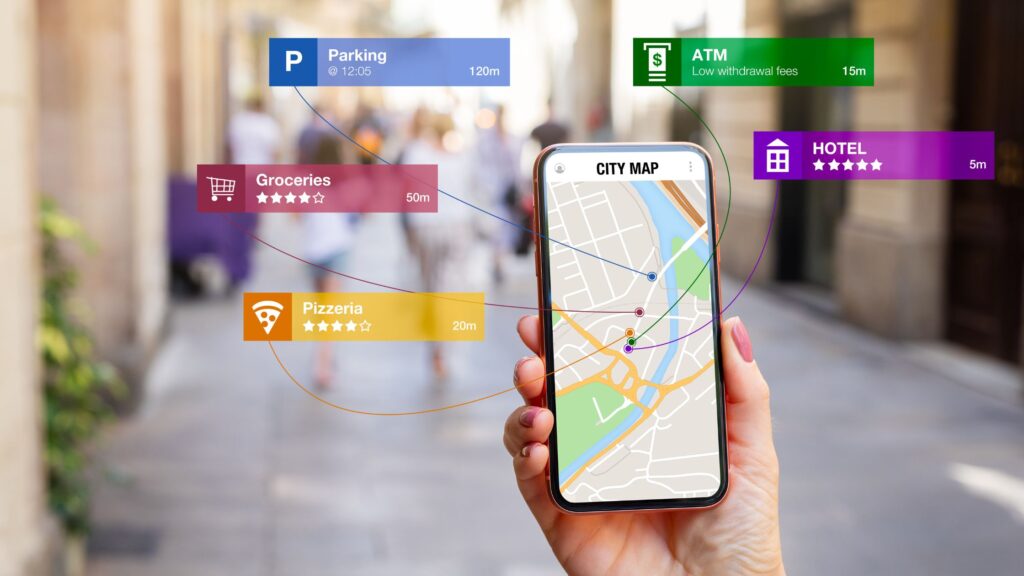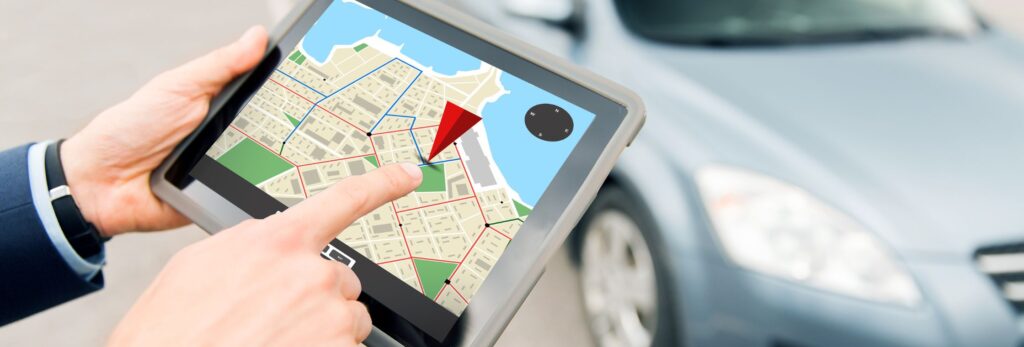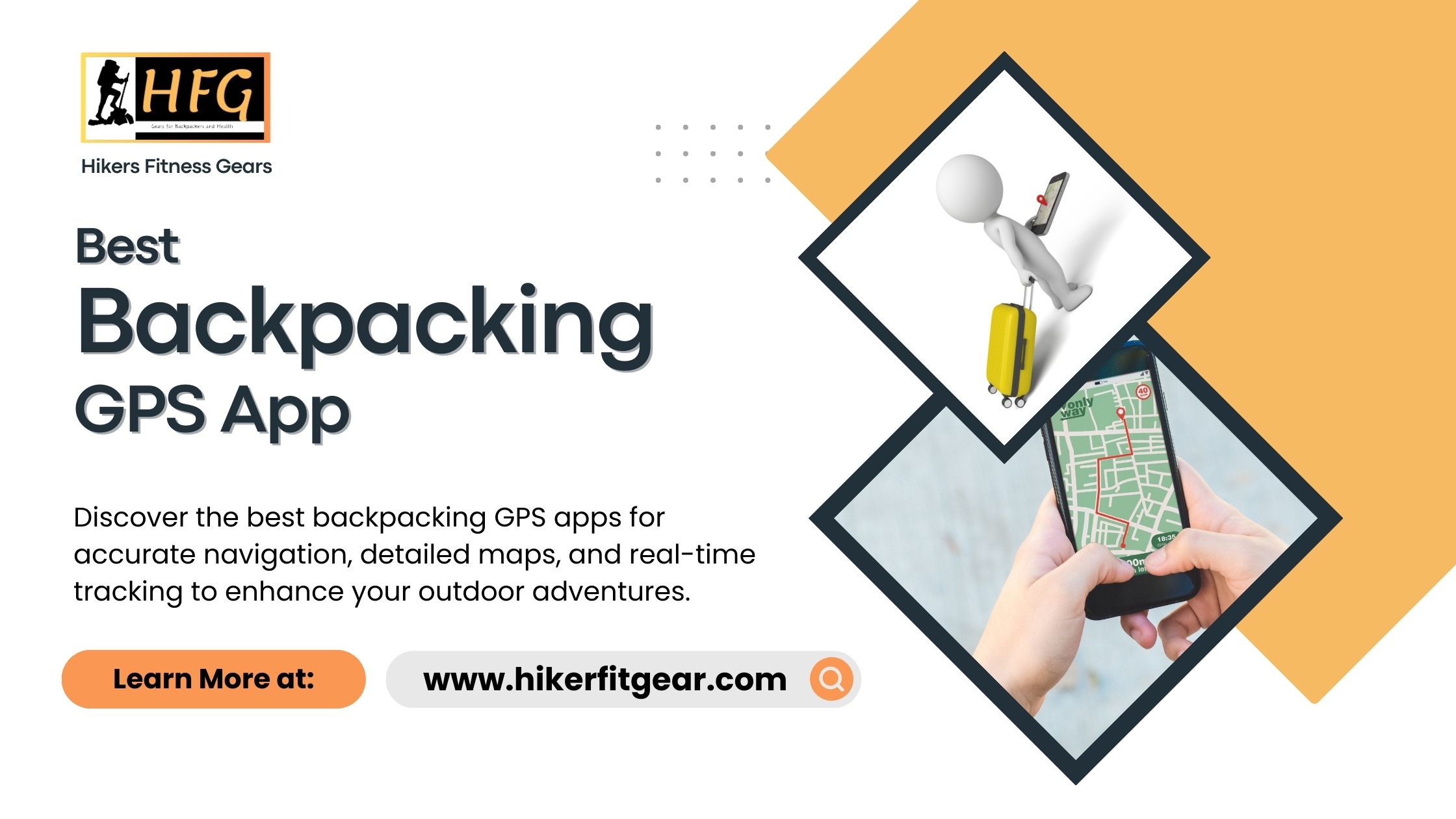Best Backpacking GPS App
Introduction
When preparing for a backpacking adventure, having a reliable GPS app on your smartphone can be just as essential as carrying a physical map or compass. The best backpacking GPS app offers comprehensive navigation, detailed maps, and a suite of features that enhance your hiking experience, ensuring you stay on track and safe throughout your journey.
Table of Contents
What This Post Covers
In this post, readers will learn about:
- Key features of the best backpacking GPS app.
- Top GPS apps available for backpacking.
- The advantages of using a GPS app over traditional navigation tools.
- Factors to consider when choosing the best backpacking GPS app.
- Practical tips for maximizing the use of your GPS app on the trail.
What is a Backpacking GPS App?
A backpacking GPS app is a smartphone application designed to provide hikers and backpackers with real-time navigation, mapping, and tracking capabilities. The best backpacking GPS app offers detailed topographic maps, offline functionality, route planning, and various tools to monitor your progress and ensure you stay on the correct path, even in remote areas without cellular service.

What Does a Backpacking GPS App Involve?
Key Features
- Offline Maps: Access to detailed maps without needing an internet connection.
- Real-Time GPS Tracking: Tracks your location and movement in real-time.
- Route Planning and Waypoints: Allows you to plan routes and mark significant waypoints.
- Topographic Maps: Provides detailed terrain information to navigate challenging landscapes.
- Altitude and Distance Tracking: Monitors your altitude gain and distance traveled.
- Weather Updates: Offers real-time weather forecasts and alerts.
- Battery Optimization: Designed to minimize battery drain during prolonged use.
Different Types
- Free GPS Apps: Offer basic navigation features and limited offline maps.
- Premium GPS Apps: Provide comprehensive features, including detailed maps, advanced navigation tools, and offline capabilities, often requiring a subscription.
- Multi-Sport GPS Apps: Suitable for various outdoor activities beyond backpacking, such as running, cycling, and skiing.
Why are Backpacking GPS Apps Important?
Navigation and Safety
The best backpacking GPS app ensures you have reliable navigation tools at your fingertips, helping you avoid getting lost. With features like offline maps and real-time tracking, these apps provide peace of mind, especially in remote areas where traditional navigation tools might fall short.
Performance Tracking
These apps track essential metrics such as distance, pace, altitude gain, and more, helping you monitor your performance and adjust your pace as needed. This data is invaluable for setting goals, improving your fitness, and planning future hikes.
Convenience
Carrying a smartphone with a GPS app is more convenient than handling physical maps and compasses. The best backpacking GPS app integrates seamlessly with your device, providing easy access to navigation tools, weather updates, and other helpful features.
Choosing the Best Backpacking GPS App
Best backpacking GPS app options include popular choices like Gaia GPS, AllTrails, ViewRanger, Guthook Guides, and Hiking Project. These apps offer comprehensive features such as offline maps, real-time GPS tracking, route planning, and detailed topographic maps. They also include community-driven content like trail reviews and updates, which enhance your overall hiking experience. Choosing the right GPS app can significantly improve your navigation and safety, making your backpacking trips more enjoyable and stress-free.
Top Backpacking GPS Apps
1. Gaia GPS
Gaia GPS is often considered the best backpacking GPS app due to its extensive mapping options, including topographic, satellite, and road maps. It offers robust offline capabilities, detailed route planning, and comprehensive tracking features. The app also integrates with various fitness trackers and smartwatches, making it a versatile choice for serious hikers.
2. AllTrails
AllTrails is a popular GPS app known for its vast database of trails, user reviews, and detailed maps. It offers offline map functionality, route planning, and the ability to track your progress. With its extensive community-driven content, AllTrails is a great tool for discovering new trails and getting real-time insights from other hikers, solidifying its reputation as one of the best backpacking GPS apps.
3. ViewRanger
ViewRanger is another top contender for the best backpacking GPS app. It offers advanced navigation features, including 3D flyovers, augmented reality views, and detailed topographic maps. The app supports offline use, making it ideal for remote backpacking trips. ViewRanger also includes a buddy beacon feature for sharing your location with friends and family.
4. Guthook Guides
Guthook Guides is specifically designed for long-distance hikers and backpackers. It provides detailed maps, waypoint information, and real-time trail updates from other users. The app is especially useful for thru-hikers on popular trails like the Appalachian Trail and Pacific Crest Trail. Its community-driven updates and reliable offline functionality make it a strong candidate for the best backpacking GPS app.
5. Hiking Project
Hiking Project is a comprehensive GPS app that offers detailed trail maps, user reviews, and route planning tools. It includes offline map capabilities and integrates with GPS devices to provide real-time tracking. The app’s extensive database and community contributions ensure that you have access to accurate and up-to-date trail information, earning it a spot among the best backpacking GPS apps.
Factors to Consider When Choosing the Best GPS App for Backpacking
Offline Capabilities
The best backpacking GPS app should offer robust offline capabilities, allowing you to download maps and use navigation tools without an internet connection. This is crucial for remote areas where cellular service is unavailable.
Map Detail and Variety
Look for apps that provide detailed topographic maps, satellite views, and various map layers to enhance your navigation experience. The more detailed and varied the maps, the better prepared you’ll be for different terrains.
User Interface
An intuitive and user-friendly interface is essential for quickly accessing navigation tools and interpreting data. The best backpacking GPS app will have a clean, easy-to-navigate interface.
Battery Usage
GPS apps can drain your phone’s battery quickly. Choose an app that optimizes battery usage and consider carrying a portable charger on your hikes.
Community Features
Apps with community features, such as trail reviews, user photos, and real-time updates, provide valuable insights and enhance your overall hiking experience. The best backpacking GPS app will leverage community contributions for better trail information.
Why is a Backpacking GPS App Different from Other Navigation Tools?
Accessibility
Unlike handheld GPS devices or physical maps, a GPS app is easily accessible on your smartphone. This convenience allows for real-time navigation and quick adjustments during your hike.
Integration with Other Devices
Many GPS apps integrate with fitness trackers, smartwatches, and other devices, providing a comprehensive view of your performance and navigation data. The best backpacking GPS app will seamlessly integrate with your existing devices.
Cost-Effectiveness
While premium GPS apps may require a subscription, they are generally more cost-effective than purchasing standalone GPS devices. Additionally, they often offer frequent updates and new features, ensuring you have the latest tools for your adventures.

Things to Look for When Dealing with a Backpacking GPS App
Regular Updates
Ensure the app you choose receives regular updates to improve functionality, fix bugs, and add new features. The best backpacking GPS app will have strong support and frequent updates.
Customer Support
Reliable customer support is crucial in case you encounter issues with the app. Look for apps with good customer service and comprehensive support resources.
Compatibility
Check if the app is compatible with your smartphone and other devices. The best backpacking GPS app will support a wide range of devices and operating systems.
Trial Period
Some premium GPS apps offer a trial period or free version with limited features. Take advantage of these trials to test the app and ensure it meets your needs before committing to a subscription.
Conclusion
Choosing the best backpacking GPS app depends on your specific needs and preferences. Gaia GPS, AllTrails, ViewRanger, Guthook Guides, and Hiking Project are all excellent choices, each offering unique features and advantages. Consider factors like offline capabilities, map detail, user interface, and battery usage when making your decision. With the right GPS app, you can enhance your backpacking experience, stay safe, and enjoy the great outdoors with confidence.
Frequently Asked Questions:
1. What is the best backpacking GPS app for offline use?
Gaia GPS and ViewRanger are highly recommended for their robust offline capabilities, allowing you to download and access detailed maps without an internet connection.
2. Can I use a backpacking GPS app for other outdoor activities?
Yes, many backpacking GPS apps, such as AllTrails and ViewRanger, are designed for multi-sport use, including running, cycling, and skiing.
3. How accurate are the navigation features on a GPS app?
Modern backpacking GPS apps, like Guthook Guides, offer highly accurate navigation features, including real-time tracking and detailed topographic maps.
4. Are backpacking GPS apps free?
Many backpacking GPS apps offer free versions with basic features. However, premium versions with advanced functionalities and offline capabilities often require a subscription.
5. What should I do if my phone’s battery runs out during a hike?
To prevent this, choose a GPS app that optimizes battery usage and carry a portable charger or spare batteries. Additionally, consider using a power-saving mode on your phone.

My name is Oje and I’m obsessed with finding the latest tech gear to help people track progress and solve problems more efficiently. I spend countless hours researching and testing innovative apps, wearables, and devices for fitness, health, productivity, and more.
